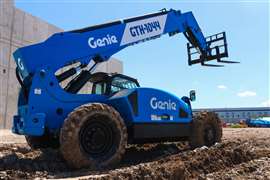Read this article in Français Deutsch Italiano Português Español
Report links dozens of migrant deaths to safety failings on Saudi projects
15 May 2025
 Saudi Arabia Riyadh landscape (Photo: AdobeStock)
Saudi Arabia Riyadh landscape (Photo: AdobeStock)
Some migrant construction workers are dying “gruesome yet avoidable” deaths on Saudi Arabian construction projects according to a new report from Human Rights Watch, which has claimed that many migrant deaths in the Kingdom are being erroneously classified as “natural”.
The organisation said it had interviewed the families of 31 deceased migrant workers from Bangladesh, India and Nepal, who died in Saudi Arabia. The ages of the deceased workers ranged from 23 to 52.
Human Rights Watch researchers also spoke to two social workers based in the migrant workers’ countries of origin and three current migrant workers who were witness to their colleagues’ deaths. The researchers also reviewed, where available, deceased workers’ “No Objection Certificates”, a mandatory document issued by origin country embassies before allowing repatriation of a migrant worker’s body, death certificates, and other relevant official documents.
Human Rights Watch found that even work-related death cases categorised as such in a migrant worker’s death certificate are sometimes not compensated as they should be according to Saudi law and international labour standards. Where such deaths are compensated, the process is “long and burdensome”, it claimed.
The organisation called for Saudi authorities and employers to ensure that all migrant worker deaths, regardless of the perceived cause, time and place, are “properly investigated” and the families of deceased workers receive “fair and timely compensation”.
Saudi laws require employers with 50 or more workers to implement a health and safety policy, conduct training, assess workplace risks, and provide necessary protective gear and first aid.
The Kingdom’s National Council of Occupational Safety and Health has said that the Human Resources and Social Development Ministry conducts regular inspections, compliance checks, and investigations of workplace incidents. It has also asserted that it addresses violations through legal action or penalties as specified by labour regulations.
Its report comes as Saudi Arabia continues construction on a series of high-value gigaprojects, as well as preparing for the 2034 World Cup.
Footballing body FIFA has previously written to Human Rights Watch to emphasis its “steadfast commitment to the protection and promotion of human rights”.
FIFA said it would “play its part” in ensuring strong protections for workers”. It added, “As reflected in the bid documents submitted by Saudi Arabia, the country has taken significant steps to reform its labour laws since 2018. As such, it has for example taken steps to abolish important aspects of the kafala system and increasing labour mobility, standardised labour contracts, and established a wage protection system, and strengthened requirements on occupational health and safety. The Saudi government has also stated that it is collaborating with the International Labour Organisation on the further expansion and effective implementation of these reforms.”
Saudi Arabia’s Ministry for Human Resources and Social Development has been contacted for comment.
STAY CONNECTED


Receive the information you need when you need it through our world-leading magazines, newsletters and daily briefings.
CONNECT WITH THE TEAM










